The Coronavirus Shock Looks More like a Natural Disaster than a Cyclical Downturn

It’s tempting to compare the economic fallout from the coronavirus pandemic to prior business cycle downturns, particularly the Great Recession. However, such comparisons may not be particularly apt—as evidenced by the unprecedented surge in initial jobless claims over the past three weeks. Recessions typically develop gradually over time, reflecting underlying economic and financial conditions, whereas the current economic situation developed suddenly as a consequence of a fast-moving global pandemic. A more appropriate comparison would be to a regional economy suffering the effects of a severe natural disaster, like Louisiana after Hurricane Katrina or Puerto Rico after Hurricane Maria. To illustrate this point, we track the recent path of unemployment claims in the United States, finding a much closer match with Louisiana after Katrina than the U.S. economy following the Great Recession.
How Does Credit Access Affect Job‑Search Outcomes and Sorting?
Searching for Higher Job Satisfaction
Is the Tide Lifting All Boats? A Closer Look at the Earnings Growth Experiences of U.S. Workers
Women Have Been Hit Hard by the Loss of Routine Jobs, Too
Reading the Tea Leaves of the U.S. Business Cycle—Part Two

New work by Richard Crump, Domenico Giannone, and David Lucca finds labor market data to be the most reliable information for dating the U.S. business cycle.
Reading the Tea Leaves of the U.S. Business Cycle—Part One
Growth Has Slowed across the Region
At today’s regional economic press briefing, we highlighted some recent softening in the tri-state regional economy (New York, Northern New Jersey, and Fairfield County, Connecticut)—a noteworthy contrast from our briefing a year ago, when economic growth and job creation were fairly brisk. We also showed that Puerto Rico and the U.S. Virgin Islands, which are part of the New York Fed’s district, both continue to face major challenges but have made significant economic progress following the catastrophic hurricanes of 2017.
Job Ladders and Careers
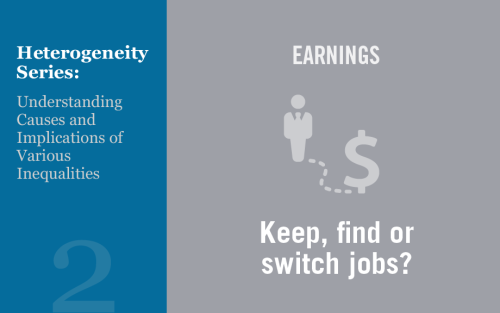
Workers in the United States experience vast differences in lifetime earnings. Individuals in the 90th percentile earn around seven times more than those in the 10th percentile, and those in the top percentile earn almost twenty times more. A large share of these differences arise over the course of people’s careers. What accounts for these vastly different outcomes in the labor market? Why do some individuals experience much steeper earnings profiles than others? Previous research has shown that the “job ladder”—in which workers obtain large pay increases when they switch to better jobs or when firms want to poach them—is important for wage growth. In this post, we investigate how job ladders differ across workers.















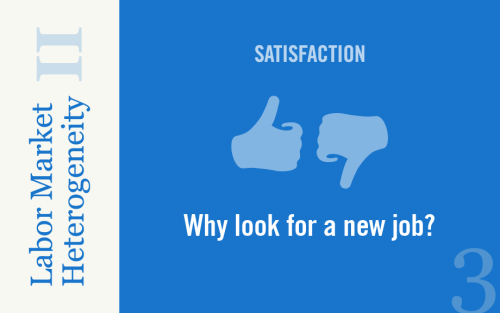
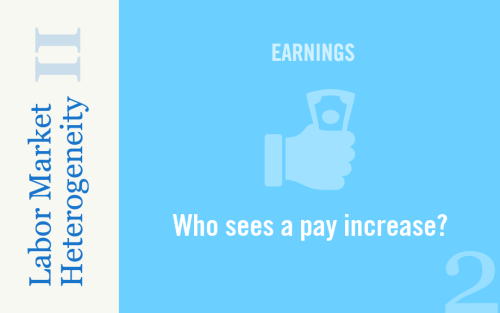
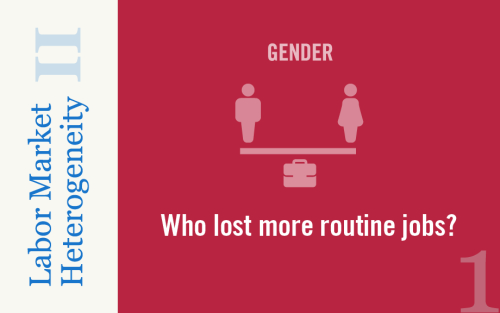
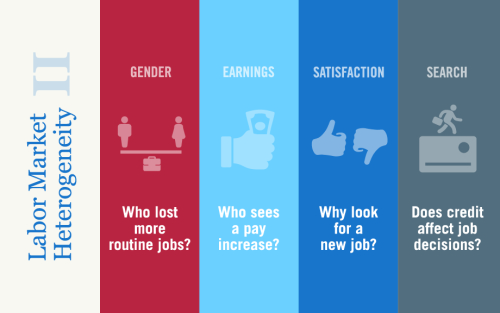

 RSS Feed
RSS Feed Follow Liberty Street Economics
Follow Liberty Street Economics